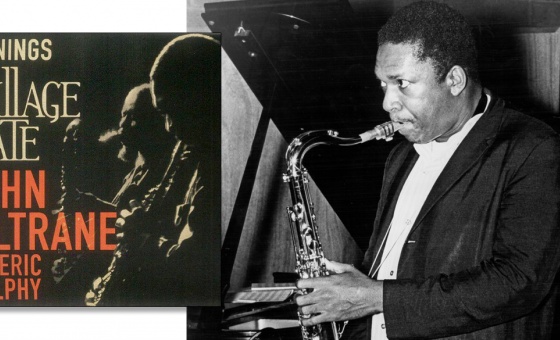This is the last article you can read this month
You can read more article this month
You can read more articles this month
Sorry your limit is up for this month
Reset on:
Please help support the Morning Star by subscribing here
THIS spring marks 70 years since the start of the notorious red-baiting and blacklisting that hit the US entertainment industry so hard and destroyed the careers and often the lives of so many talented individuals.
In many ways it started with the publication of a little booklet called Red Channels: the Report of Communist Influence in Radio and Television. The booklet written by Ted C Kirkpatrick, a former FBI agent, and Vincent Hartnett, a right-wing television producer, listed the names of 151 writers, directors and performers.
Those names had been assembled from two main sources – first from what were supposed to be secret FBI files and also from scrutinising back copies of the American Daily Worker.
Red Channels arrived quietly, silently almost – secretly passed from hand to hand among those whom the publishers and distributers thought would be sympathetic to their ultra right-wing cause. Many radio, TV and film executives wouldn't even admit to having seen a copy. But Red Channels was soon the most public secret in the industry.
Among the 151 names it listed in this tawdry little publication were Orson Welles, Leonard Bernstein, Arthur Miller, Lena Horne, Edward R Murrow, Artie Shaw, Aaron Copland, Marc Blitzstein, Lee J Cobb, Jose Ferrer, Dashiell Hammett, Lillian Hellman, Larry Adler, Oscar Brand, Will Geer, Burl Ives, Alan Lomax, Dorothy Parker, Edward G Robinson and Gypsy Rose Lee.
Another was Yip Harburg, who wrote songs like Brother Can You Spare a Dime, April in Paris, It’s Only a Paper Moon and all the songs for The Wizard of Oz including Over the Rainbow – enjoying a revival in popularity today.
Red Channels reported Harburg’s involvement with the Hollywood Democratic committee, and his refusal to identify communists. He was blocked from working in Hollywood films, television and radio for twelve full years.
One film actor named Marsha Hunt was listed. Today aged 102, she explained: “I was a film actress who was doing more television than anyone else because I was in New York doing plays.” In July her agent called with some strange news.
”Three different networks had offered me my own television series. I was waiting to hear from the three networks – and I never did. My agent explained with two words, which I had never heard before: Red Channels. He told me anyone listed in the pamphlet was just not welcome on the air anymore.”
This scurrilous rag was produced by a gang of right-wing ex-FBI agents operating out of a small office on West 42nd Street, New York. The agents had started a scruffy subscription-only anti-communist duplicated newsletter called Counterattack: the Newsletter of Facts on Communism.
It would run from 1947 into the 1950s. It had two missions: first, it set out to expose everyone it could find who had any connection, however dubious or tenuous, to anything or anyone associated with communism, socialism, the Soviet Union, or progressive ideology.
More significantly, Counterattack sought to rally its subscribers to take action against the individuals it targeted.
Its target subscribers included “security officers, personnel directors, employment managers and all sorts of people whose business requires them to know the facts about the background of organisations and/or individuals.” In fact it sold blacklists to employers and by 1949, Counterattack had earned some £175,000 from selling such lists.
When it came to performers and production personnel in radio and television it went much further. Counterattack exhorted its readers to write protest letters to the corporate sponsors of programmes featuring actors with purported links to the left.
One of the founders, Francis J McNamara, would have a long career in red-baiting. McNamara was editor of Counterattack.
He joined the House Committee on Un-American Activities (HUAC) as research analyst in 1958 and director of research in 1961. By 1962 he was its staff director.
Ardent anti-communist Alfred Kohlberg, a millionaire textile importer, funded the group behind Counterattack and Red Channels. He registered the business that would run them as the American Business Consultants Inc. (ABC) in 1947 and it offered a service costing $5 to investigate one or more people.
Among US business giants who subscribed to its Counterattack newsletter were Bendix, Du Pont, General Motors and Woolworths.
The ex-FBI agents had no problem getting private information from FBI files. They had the FBI chief on their side. On March 26, 1947, FBI director J Edgar Hoover appeared before HUAC to air his views on communism. Hoover ranted: “The mad march of red fascism is a cause for concern in America. But the deceit, the trickery, and the lies of the American communists are catching up with them.”
HUAC’s investigations gathered momentum after Hoover’s speech – and, shortly after, Counterattack launched publishing. By October 1947, HUAC began investigating the influence and infiltration of communism in Hollywood.
Blacklisting in the entertainment industry began with a contempt of Congress charge against what would become known as the Hollywood Ten.
On June 22 1950, Counterattack published its special issue, Red Channels: the Report of Communist Influence in Radio and Television.
Red Channels shook the entertainment industry. In August 1950, advertising agency Young & Rubicam and its radio and television client General Foods, who sponsored The Aldrich Family and The Goldbergs, ran into what were called pinko issues. Actor Jean Muir had been named in Red Channels. A well organised campaign of protest letters got her sacked from The Aldrich Family show before the first programme had been aired.
Some would fight back. In 1950 Billboard Magazine published a full-scale attack on Counterattack. Billboard told the truth about the paper and the ex-FBI foursome who ran it.
Others took their fight to court. Actors Frederic March and his wife Florence Eldridge sued Counterattack for a quarter of a million dollars for defamation and damages. Counterattack settled out of court.
Marsha Hunt remembers how Red Channels ruined her life.
“At the time, in New York, there was no procedure set up to try to clear your name,” she recalls. You had to repent any official stand you may have taken, such as signing a petition for something you believed in. You had to repent all those activities that were cited under your name in Red Channels and to swear lifelong hatred and opposition to the Communist Party.”
Before she was 30 Marsha Hunt had made more than 40 films. Producers valued her attractive and intelligent screen presence. In 1945 she was asked to join the board of the Screen Actors Guild – the actors’ union – and for the first time her politics came under scrutiny. “I was proud to be asked. To have a voice in what would affect all screen actors was dazzlingly important to me,” she says.
In 1947, HUAC summoned 10 writers to Washington to testify. Each was asked if he was a communist and all ultimately went to prison for refusing to answer or to name other communists.
Marsha’s problems with the authorities began when she joined the Committee for the First Amendment – a group of liberal actors who supported the Hollywood Ten. Among other members who flew to Washington to protest were Danny Kaye, Gene Kelly and John Huston. Also there were Lauren Bacall and husband Humphrey Bogart – the biggest stars Hollywood had.
“We made our speeches and did a radio programme called Hollywood Fights Back and came home thinking we’d been patriots and had defended our profession. If there were some communists among us, that was their business and not ours,” Marsha continued.
“I knew nothing about communism but I just thought that as it was a legal party other people had the right to join the darned thing if they wanted to. But it was a time of hysteria and all of us who spoke out against blacklists were punished in some way or other. There was a very strong right wing in the movie business.” Hunt says she “certainly lost a lot of jobs as the blacklist tightened.”
Today the only survivor of the list, apart from Hunt, is Walter Bernstein, who’s 100. In 1976 Bernstein wrote the Woody Allen comedy film The Front about the blacklist era.
Seventy years on you could be excused for believing red-baiting, right-wing bluster and political persecution would have been left behind forever. Sadly in Donald Trump’s America nothing could be further from the truth.











